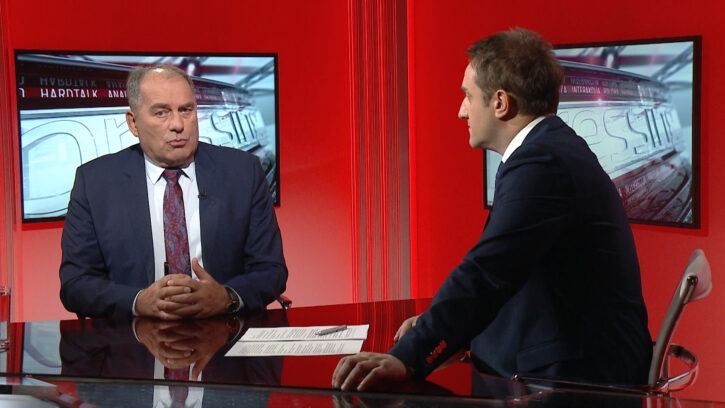
Bosnia and Herzegovina did not recognise Kosovo's independence and Kosovo is not a UN member state, Bosnia's Security Minister Dragan Mektic told N1, adding that these were main reasons why he did not support Kosovo's membership in the Interpol.
“This was Kosovo's third attempt to join the Interpol,” Mektic recalled and explained it required a two-thirds majority for a new member state to join the international police bodies.
According to the minister, there was a lot of lobbying for Kosovo to join prior to the General Assembly's session, which took place on Monday in Dubai, and various discussions on this topics.
“I voted against Kosovo's accession for several reasons. Bosnia and Herzegovina didn't recognise Kosovo as a separate country and Kosovo is not a member of the UN. These are formally-legal reasons of technical nature,” the minister told N1's Pressing current affairs programme.
Commenting on the customs measures that Kosovo introduced for Bosnia and Serbia a day after the vote in the Interpol, Mektic said these two topics cannot be related.
“I simply can't believe they linked these two things. They absolutely have nothing to do with one another,” the minister stressed, adding that it would be a “mistake” if the Kosovo decision was “provoked” with the Interpol vote.
Speaking about the current situation in the country the outgoing security minister, who spent nearly four years in office, said the politics posed the biggest problem in Bosnia.
“Yes, I am the part of the politics, but I was trying to solve problems as much as I could and was able to cope with all that. But it was necessary to create one political ambient and consensus,” said the minister.
Without mentioning any specific names, Mektic said that judicial officials “sank in crime and nepotism” and that one cannot expect they will be the ones to start the problem-solving process.
“I think this is the fate of Bosnia and Herzegovina and that this moment has to come. We can't solve problems before the rule of law is established, before the rule of law starts functioning,” he stressed.
Bosnian judiciary entered “various deals with various politics” and, the minister stressed, in this way allowed “a tremendous influence the on judicial system.” He directly accused two political parties, the Alliance of Independent Social Democrats (SNSD) and the Croat Democratic Union (HDZ BiH) of doing that.
“I think both HDZ and SNSD make a strong political influence on the High Judicial and Prosecutorial Council and the key figures in the Prosecutor's Office of Bosnia and Herzegovina,” he said, unveiling no further details on this matter.




